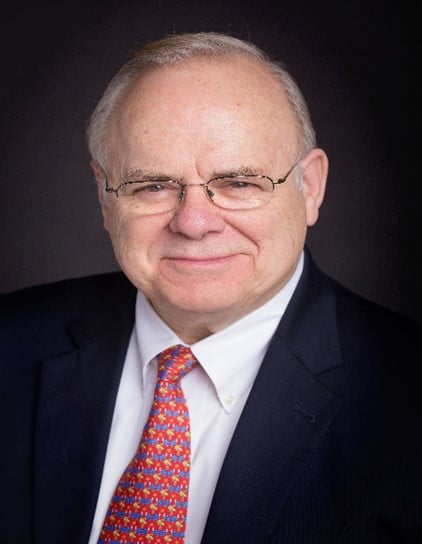The Best Job of My Life
Sep 9, 2022
These are difficult times to be positive about almost anything, and certainly the nature of work is no exception. The lingering challenges of the pandemic on both the family and one’s professional life, many corporate disruptions across industries, economic instability affecting all of us, and the evolving “world of work” which has certainly become more impersonal and more isolated making it most difficult to remain engaged and motivated in almost any job. It is easy to become bewildered about the best path forward to achieve fulfillment in today’s world, and to have clarity about what it means to be successful.
It is because of these conditions that we decided to look backwards to those times when most of us experienced something special, at least a few times in our lives, where we had a job or role (at work, school or in volunteer activities) that motivated us to excel and deliver something that we valued—something that made a difference. In fact, such experiences are not normal daily occurrences, and just having a few of them in a lifetime can provide a foundation to our self-worth. They are points of pride. They feed our positive image of self.
We surveyed 20 people in different walks of professional life including a lawyer, a therapist, a counselor, an educator, an administrator, a banker, a minister, an accountant, an intelligence officer, and several executives and asked them to describe in some detail the best job of their lives. Their answers to this survey were most revealing and uplifting in many ways. They also painted a picture with many common elements across these different experiences. Could there be some framework for achieving a memorable job experience—that we could all try and capture in our daily lives and routines? Can we find some more positive space in our professional lives that would matter to us, and those around us?
The respondents first commented about the nature of the job and why it was significant to them. They all viewed the work as something “bigger than themselves” and that the results of their efforts would impact others and the larger world in an important way. They were honored to have the opportunity to take on the role although most felt initially overwhelmed with the assignment. There was also an appreciation for having been selected for the role or being in the right place at the right time to take it on. The job was also a step “outside their comfort zone” and included difficult goals. Some respondents felt they may have lacked formal credentials or experience, but that added to the challenge.
Comments like: “this was my first experience in private practice after being a state… administrator” or “I was the first female lay leader at the church in nearly 80 years,” help illustrate the uniqueness of the role. In some cases, the job was a turning point in a career. Although each person felt accountable for the job, and willingly took on the new responsibilities, the presence of respected colleagues who shared the same or similar objectives, and who had solid skills that were needed, was also a contributing factor in making the job experience memorable.
There were many unique challenges faced by the respondents in their roles. Often, the job required creativity in the approach as the situation was fluent or new. “There was no real playbook. We just figured it out and one was never certain if we got it right.” Failure was accepted along the journey to build experience and ultimately solve problems. There were many “people challenges” as well. Gaining commitment of others took time and required seeking alignment with the interests of the stakeholders. The shear workload was at times unbearable and there was never enough “time on the clock” to do everything that was needed.
There were also limited support/resources for what had to be done. Lots of judgement calls were required. The nature of leadership also had to evolve based on the situation with a good “mix of leading, sharing knowledge and actually being in the trenches”—a do whatever it takes attitude. Finally, the ability to manage personal time with the commitments required by the job, was a challenge for everyone. Some personal sacrifice was required and, in hindsight, was always viewed as “worth it.”

So, what motivated these respondents to jump into these roles and do what they did? In some cases, it was a “higher calling”—to be selected to take on a role that could make a difference in the lives of others or in an organization they believed in. In other cases, it was the “love of the work itself” that aligned with one’s personal values. It was also having the personal freedom to approach the job in the way of their choosing, and to work in a positive atmosphere within a team. It was also the opportunity to learn from others that they respected or to emulate a role model. There are many motivators for these opportunities—they are all personal and often lead to self-discovery.
Were there any other factors that contributed to this positive job experience? The degree of autonomy one has in this role seems to permeate all the examples—it creates unquestioned ownership of the mission and a personal commitment so vital to success. In addition, all the jobs contained a variety of challenges which demanded multiple skills to be effective; there was clearly continuous learning in these jobs.
Finally, it’s about the people. All respondents commented on the relationships they established during these assignments—many are now life-long friendships. Some also commented on the personal impact their work has had on the lives of others. A few examples: “I represented a rape victim in a lawsuit, and she said she was inspired to attend law school and is now a practicing attorney.” Another said: “I serve people who are committed to improving their lives and get to know them in a personal and trusting way. They then have a contagious effect on others to improve their lives. I believe this improves the world of work one person at a time.”
Key steps within our control
So, if we desire to have a different kind of job experience that provides us greater personal fulfillment in these challenging times, we can take some key steps within our control to make such experiences a reality.
- Run towards the fire. The existence of a challenge is perhaps the major factor in a meaningful job, no matter how we define that challenge—it is personal for all of us. The thought of it can be overwhelming, and we are not completely sure how to handle it without risk of failing. It creates trepidation and evokes some emotion, but we also know that if we could somehow “make a difference” it would help others avoid pain or elevate their lives in some way. It would matter and we may be in the best position to help now—if we act.
- Tackle the situation as though it was all that mattered. We all bring something to the table. There is a role for you to play that has meaning, but you are rarely alone in these situations. Draw off your colleagues and gain insights by active listening. Use data as much as possible to understand the challenge and measure your progress. Defer actions, when you can, until you have formulated a plan or pathway to a desired outcome. Bring all your energy and passion to the tasks at hand and give credit to others rather than seek it for yourself. Be flexible as the situation evolves but keep your eye on the longer-term goals. Chunk the problem into pieces that can be tackled successfully and celebrate progress along the way.
- Endure any pain and discouragement with optimism. There is rarely enough time, support, and resources to make you comfortable with the job. Getting to the finish line will require your creativity and ingenuity to find new solutions to evolving problems. It may seem impossible or thankless at times, but that is when you will dig deep within yourself for the strength you need. The answers are always out there, just begging for you to discover them. Know when it is important for you to lead and equally important, know when you should follow. Always stay positive and optimistic as it will carry you, and others, to ultimate success.
- Let your memories of this experience be a legacy for yourself. When you have arrived at your destination and your goals have been achieved, pause to reflect on what was done and be grateful for everything you endured. Take joy in the people who shared in the journey and those who benefited from your work. As you will not likely forget the experience of the “best job in your life”—it is also true, that those you impacted will not likely forget you and what you taught them by your efforts.
You are fortunate if you choose a journey like this during your career, as such experiences, tied together over time, are a wonderful way to define a fulfilling professional life.
As an organizational leader, there are things you can do to enable your teams to have experiences like this. And that matters because it not only motivates your teams to succeed in their work—but improves performance outcomes, morale and ultimately, staff retention. It makes your business far more successful in every way. It’s a win/win+.
Creating the right environment to provide these kinds of job experiences is challenging today. You will have to overcome many obstacles as a leader, and perhaps chart a new course in how people are developed and managed—but there are strategies to follow that are low risk and build upon each other over time. If there is “organizational will” to see this type of culture change or adjustment take place, it can be done almost anywhere.
Top-5 tips for leaders who want to shift their focus
In the experience of the authors, here are the top five tips for leaders who want to shift their focus to creating more fulfilling job experiences for their teams:
- Share the challenges. Break apart large projects or initiatives and create key leadership roles for more staff to contribute to the whole. Be clear on expected outcomes, available resources, constraints, but allow the staff freedom to define their pathway. Be supportive of all the teams, but at a safe distance. Ownership will naturally develop if you give people room to act, to fail, and to persevere.
- Support collaboration. Model openness through information sharing and reward team successes, more than individual performance. Create opportunities for more cross functional teams and use group sessions to discuss key problems, develop solutions, and commit to action. Be transparent with good news and bad.
- Pay attention to job design. Most jobs are not designed at all but exist to support a function or process, without much thought to the worker experience. Yet all job holders should feel their jobs are meaningful, that they have sufficient autonomy to perform it, are able to use a variety of skills, can see the job through effectively from beginning to end, and get feedback on results from the job itself. You need to collect data about the current state of these jobs. The above job attributes, and others, can be measured using a “job diagnostic survey.” A simplified version of the survey is available at www.mymojo.works. A well-designed job creates “internal motivation” for job holders and adds significantly to higher performance and retention. You really can’t effectively motivate performance from the outside—it must come from within the person.
- Address organizational barriers/obstacles. There will be “non-believers” who don’t see the purpose behind the focus on job and team design or they struggle with how the organization will accept the changes. There is significant research underlying the principles of job design and its impact on internal motivation. (Google: “Hackman and Oldham Model”). Implementation will not be easy, or quick, but it will deliver results if the effort is sustained with reasonable support from senior management. A strong change leader must drive this initiative to achieve lasting outcomes. External consulting expertise can also be helpful, without intimidating those being coached.
- Leverage technology more creatively. Today’s advances in technology can be enablers for allowing people to find meaning in their jobs. In robotics, as an example, when more routine tasks are automated, time is freed up for many workers. This should allow for the re-design of jobs to focus more on areas like customer service, process improvement, or launching new products. More meaningful jobs are possible if you consider how technology can improve job design.
The role of organizational leaders to create the environment for people to have more meaning in their work is paramount. Being transparent, informative, and complimentary helps everybody to feel essential to the organization in these challenging times. A positive spirit can also go a long way to quell fears of failure while bolstering everyone’s feelings of success and fulfilment.
No one can go it alone—management and staff need to work together in a supportive climate. The road map exists for those with the courage to embark on the journey.
About the Authors
President, J Francis Consulting LLC
Joe has over 40 years of experience in the financial services industry, leading large operating departments and businesses through strategic change. He applies the disciplines of operational excellence, job re-design and digitization to his transformation work and currently heads a consulting practice that specializes in coaching executive teams going through business transformations.
Executive Coach and Transition Counselor
Ron Hamara has extensive experience in executive development coaching and has worked for many years in all aspects of the human capital management transition process. Ron’s knowledge of how businesses operate and what senior executives need to develop and communicate in an ever-changing marketplace has created his unique executive coaching style. He works with senior executives in a broad range of industries including legal (firm and in-house), financial services, luxury goods, insurance, education and media.
Original Article: https://opexsociety.org/body-of-knowledge/the-best-job-of-my-life/
Stay In Touch.
Subscribe to our newsletter and exclusive Leadership content.
We respect your privacy and won’t spam your inbox


